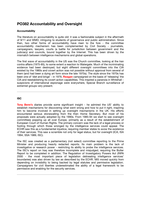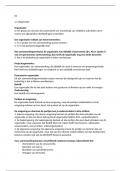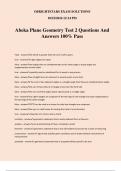Lecture notes
PO382 Revision Notes - Accountability
- Institution
- The University Of Warwick (UoW)
Revision notes on Accountability and Oversight for Vigilant State. Topics covered: - Accountability - Intelligence and Security Committee - Globalisation - Oversight - International Oversight
[Show more]






